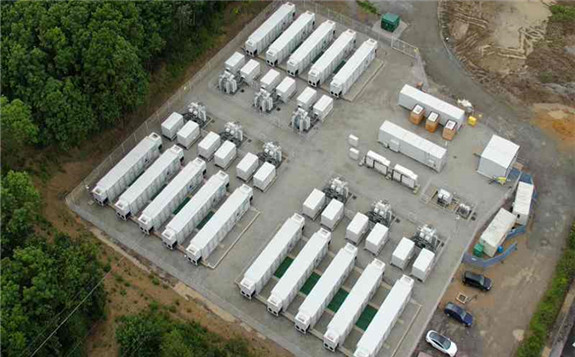A 50MW energy storage system has been activated by Pivot Power, part of EDF Renewables, and Wärtsilä to ensure more renewable energy capacity is integrated into the UK’s grid network.

The project is located in Kemsley in Kent and will provide National Grid with flexible energy required to meet changes in energy demand. The system will enable the utility to address grid operational challenges such as renewable energy curtailment and fluctuation.
Matt Allen, CEO of Pivot Power, said: “The expansion of our battery storage portfolio is an important piece of the puzzle when it comes to future-proofing the UK’s energy system and accelerating a net-zero future. Through this collaboration with Wärtsilä and EDF Renewables, we are creating more of the low carbon infrastructure needed to manage the integration of renewables into the grid and power our lives with clean energy.”
The plant is Pivot Power’s second energy storage system out of the forty the company plans to install across the UK as part of a £41 million ($56.5 million) initiative.
Pivot Power launched its first storage system as part of the programme in June in Cowley in Oxford, marking the first grid-scale battery to directly connect to the transmission network in the UK.
Pivot Power’s activation of the first grid-scale energy storage system in Oxford.
The multi-year nationwide deployment will add 2GW of flexible capacity by 2035 to help the UK to accelerate the energy transition through increased deployment of renewables.
Up to 18GW of storage capacity is required to support the UK’s transition to renewable energy and smart energy-based grid networks in mitigating climate change by 2035, according to Wärtsilä. Pivot Power’s £41 million ($56.5 million) project is expected to deliver 10% of the storage capacity the UK requires by 2035.
Pivot Power’s two systems comprise Wärtsilä’s artificial intelligence and machine learning-based digital energy platform for real-time management of energy charging and discharging in line with energy demand changes across the grid networks.
As a result, National Grid is able to benefit from the dynamic containment and frequency regulation services provided by the systems to optimise the performance of the grid and other distributed energy resources such as solar, wind and electric vehicles.
Andy Tang, vice president of energy storage and optimisation at Wärtsilä, added that storage will enable an affordable energy transition to be delivered across the UK.
Adding flexibility to the UK power system via energy storage can deliver a higher share of renewable generation (62%) than could be possible by adding wind and solar without flexibility, with corresponding utilisation of storage also increasing, according to Wärtsilä.